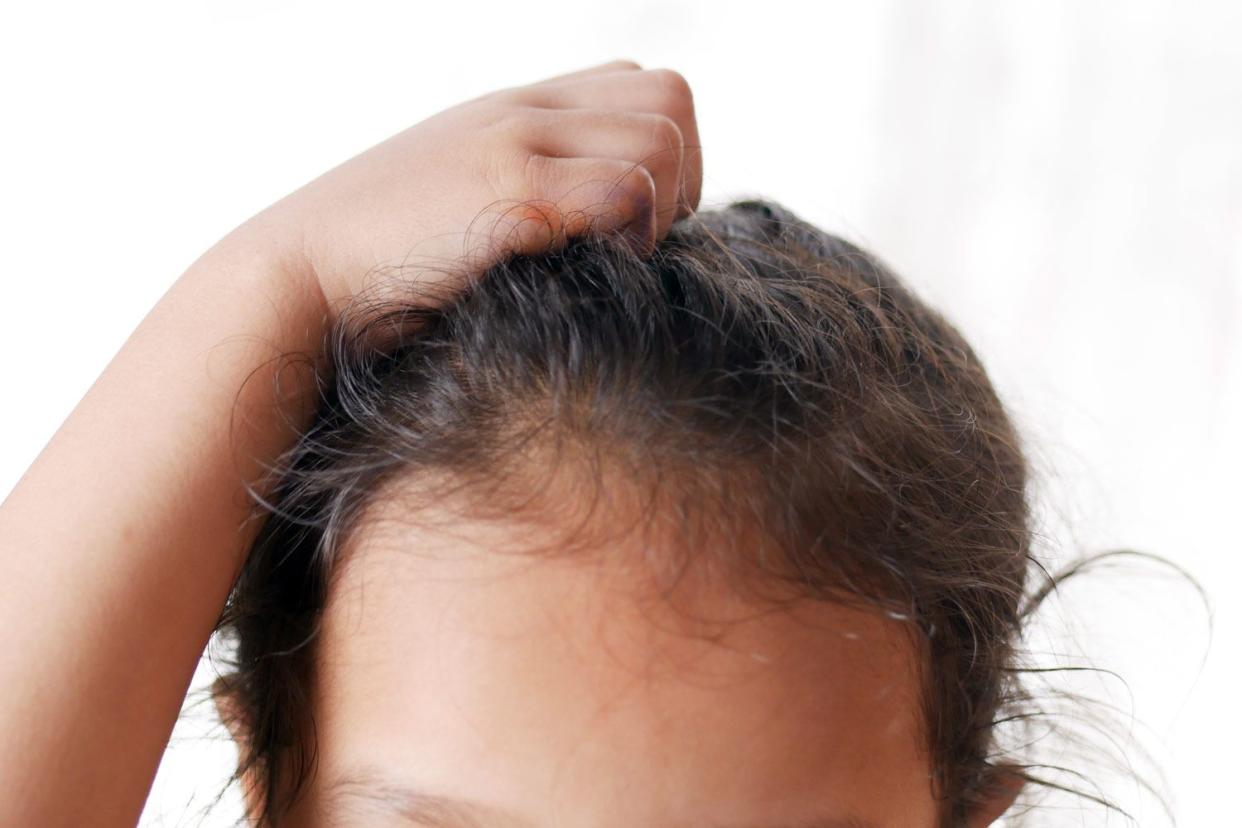Kids with Head Lice No Longer Required To Be Sent Home from School According to New Guidelines From the CDC
"Head lice is not considered a communicable disease, because lice do not carry disease," said the Director of Community Wellness, in Kent County, Mich.

Getty
Stock photo of a child scratching their head.The discovery of head lice on a child's body no longer means they are guaranteed a day off from school, according to the Centers for Disease Control and Prevention.
The health agency recently updated guidelines on when to treat the affliction once the insects are discovered on a child's head.
For many years, it was recommended that kids with lice be sent home from school and receive treatment immediately. Additionally, parents were advised not to send their child back to school until the insect eggs (called nits) were no longer detectable in the child's scalp.
According to the updated guidelines, while it's necessary that kids who have lice are treated, the need for immediate treatment is not quite as urgent as it was once thought to be.
"You do not need to send students with head lice infestation home early from school," according to information on the CDC website. "Students with lice can go home at the end of the day, be treated, and return to class after beginning appropriate treatment."
Never miss a story — sign up for PEOPLE's free daily newsletter to stay up-to-date on the best of what PEOPLE has to offer, from celebrity news to compelling human interest stories.
The guidelines also say: "Nits may stay in hair after treatment, but successful treatment will kill crawling lice."
In addition, the CDC suggested that schools discontinue "no-nit" policies that require a child be free of insect eggs before they return to school, citing the American Academy of Pediatrics (AAP) and the National Association of School Nurses (NASN).
According to the CDC, many nits are more than 1/4 of an inch from the scalp, meaning they are either very unlikely to hatch live, crawling lice, or wind up being an egg casing with no insect inside.
Additionally, per the CDC, "nits bond to hair shafts and are very unlikely to transfer to other people."
Regarding the decision to change school policies, the CDC said, "Unnecessary days off cause a burden to the students, families, and communities, and far outweighs the risks associated with head lice."
Plus, misdiagnosis of nits is common during nit checks done by non-medical professionals per the CDC.
A local Fox affiliate in Michigan, Fox 17, spoke to Joann Hoganson, Director of Community Wellness, Kent County Health Department, who emphasized why the guidelines are safe.
"Head lice is not considered a communicable disease, because lice do not carry disease,” Hoganson said.
For more People news, make sure to sign up for our newsletter!
Read the original article on People.
